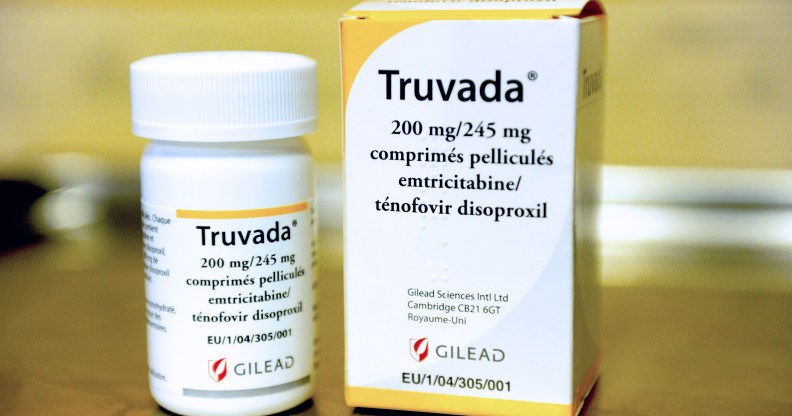New HIV diagnosis rates in Ireland now higher than the height of the AIDS epidemic

Truvada, a branded version of PrEP. (Getty)
HIV rates in Ireland have risen again this year with numbers now higher than they were at the height of the AIDS epidemic in the 1980s and 1990s.
There have been 476 new diagnoses of HIV in Ireland this year so far compared to 447 in the same period of last year, according to The Irish Times.
The statistics mean that Ireland is now at double the European average for new diagnoses.
According to HIV Ireland, almost 10,000 people have been diagnosed with the virus in Ireland since the early 1980s. Last year, there were 523 new diagnoses, with the significant majority of those gay and bisexual men aged 25-39.
Despite HIV rates rising year on year, a national PrEP programme was only introduced in Ireland last month, and has not yet been fully rolled out. Before this, those who wanted to take the drug – which drastically reduces the risk of contracting HIV – had to purchase it privately.
PrEP programme was only recently introduced in Ireland as HIV rates continue to rise.
Noel Donnellon of ACT UP Dublin said that more work needs to be done to reduce HIV diagnoses.
“The PrEP programme has just started now, it hasn’t gone to full roll-out yet, but some people clinically eligible in the program can take part, and we’re seeing good take-up, so the hope is that will eventually affect figures.”
Ireland’s PrEP programme was announced earlier this year following the publication of a draft report from the Health Information and Quality Authority (HIQA) which found that PrEP is highly effective at preventing HIV.
The report found that a national programme would provide greater access to the drug and could also ultimately be cost-saving.
The PrEP programme has just started now, it hasn’t gone to full roll-out yet, but some people clinically eligible in the program can take part, and we’re seeing good take-up, so the hope is that will eventually affect figures.
Prior to the introduction of the PrEP programme, the preventative drug was not available on Ireland’s Primary Care Reimbursement Service, which meant that gay and bisexual men had to pay for it themselves. The report also said there was evidence that gay and bisexual men were ordering it online to save money.
New programme was welcomed by Irish Taoiseach Leo Varadkar.
It said that this situation could create “inequity” as the drug was only available to those who could afford to pay for it. Therefore, the draft report suggested that PrEP should be offered “free of charge” as a part of the new national programme.
Irish Taoiseach Leo Varadkar — who is openly gay — welcomed the publication of the draft report and said the government is committed to introducing an effective national programme to reduce HIV diagnoses.
“We want to reduce the number of new HIV diagnoses in Ireland. Increasing the availability of PrEP will help us to do so,” Varadkar said.
“This report not only confirms that PrEP can help to prevent HIV amongst those who are high risk, it also shows how a PrEP programme could save money.
“The introduction of a PrEP programme, coupled with increased testing and greater awareness will help us to reduce the number of people contracting HIV.”

